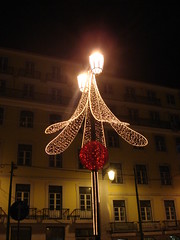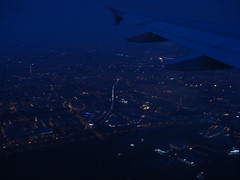
How much fantasy can one bid on a historic
re-interpretation of scattered facts and still get away with it? This seems to be the balance that Mr. Menzies is trying to strike in this book - might that be for fun, for curiosity, or for the sake of playing mind games and trying to re-write history at the same time.
The fact that the book's controversial is an understatement: its potential is so great that it might actually be able
to redefine the notion of 'controversy'. So if you can play along with that, then it won't frustrate you to read it. But if it's hard facts proven by science alone, this might come as
a bit of an off-tracker.
Take
CSI,
House M.D. or
Dexter and apply the sort of investigation scenarios done in those scripts to history -- almost 600 years ago. This does sound a bit tricky in itself, doesn't it? And it gets even trickier as the entirety of the evidence it brings to supporting the ideas [plural] behind the writing is circumstantial, at best.
So what's the big mystery behind it? It's a re-conceptualisation of the Discoveries and who had
really undertaken them: Mr. Menzies basically says it in the title of his book: he considers that it was the Chinese rather than the Europeans who had first discovered and mapped the world as we know it - and with highly accurate results, for that matter. He then goes on to say that the Europeans managed to get hold of these Chinese maps at the same time that the Chinese decided to plunge into a [new?] age of isolationism.
This would sound as an agreeable theory at first -never mind that you've never heard of it on the telly or otherwise- if it hadn't been for the manner in which it's unraveled: the way to deal with facts is by starting off with the assumption that they will prove the theory/ies, followed by the assumption that they do in fact prove it/them and concluding with the confirmation that it's all been proven. [For more on punctual criticisms
look here.]
[Finally, the translation of the Romanian copy I've read doesn't help much either: many times I had to re-translate the book back into English in order to understand the message behind the words. Possibly this has been one of the greatest difficulties in my appreciation of it.]
Bottom line: if you can find humour in new theories, this is the holidays book for you! If you are however easily bored with facts which might not come as straightforward and are rather seeking the ultimate truth, then this book should prove as rather challenging instead.
[Image
credits go here.]
P.S. This is the book's website:
1421.tvLabels: books, China, Europe, Explorer/s, Q?, quest

















